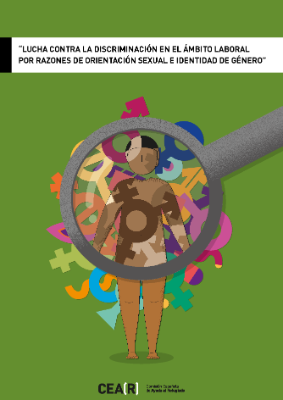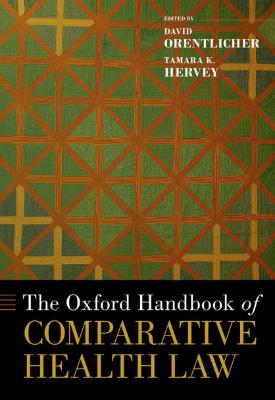
|
The Oxford Handbook of International Law in Armed Conflict
The Handbook consists of 32 Chapters in seven parts. Part I provides the historical background and sets out some of the contemporary challenges. Part II considers the relevant sources of international law. Part III describes the different legal regimes: land warfare, air warfare, maritime warfare, the law of occupation, the law applicable to peace operations, and the law of neutrality. Part IV introduces key concepts in international humanitarian law: weapons and the notion of superfluous injury and unnecessary suffering, the principle of distinction, proportionality, genocide and crimes against humanity, grave breaches and war crimes, internal armed conflict. Part V looks at key rights: the right to life, the prohibition on torture, the right to fair trial, economic, social and cultural rights, the protection of the environment, the protection of cultural property, and the human rights of the members of the armed forces. Part VI covers key issues such as: the use of force, terrorism, unlawful combatants, the application of human rights in times of armed conflict, forced migration, and issues of gender. Part VII deals with accountability issues including those related to private security companies, the need to focus on armed groups, as well as questions of state responsibility brought before national courts, and finally, the book addresses issues related to transitional justice.
|

|
Latin America and refugee protection: regimes, logics and challenges
Looking at refugee protection in Latin America, this landmark edited collection assesses what the region has achieved in recent years. It analyses Latin America’s main documents in refugee protection, evaluates the particular aspects of different regimes, and reviews their emergence, development and effect, to develop understanding of refugee protection in the region. Drawing from multidisciplinary texts from both leading academics and practitioners, this comprehensive, innovative and highly topical book adopts an analytical framework to understand and improve Latin America’s protection of refugees.
|
|

|
Lucha contra la discriminación en el ámbito laboral por razones de orientación sexual e identidad de género
Esta investigación ha posibilitado una primera aproximación exploratoria sobre la realidad vivida por las personas migrantes LGBTIQ+ en relación con el acceso al empleo. Dichas experiencias no tienen por qué ser de carácter discriminatorio, pero sí de situaciones que les coloca en una posición de desventaja y que, como resultado, las excluye de la posibilidad de acceder a un puesto de trabajo en condiciones de igualdad, o directamente, no acceden al mismo.
Los resultados obtenidos han sido contrastados con un grupo de personas expertas en cuestiones relacionadas con la inserción social y laboral de colectivos vulnerables y/o personas LGBTIQ+, tanto del ámbito académico como ciudadanía organizada, de organizaciones sociales y sindicales. De sus aportaciones y reflexiones se derivan, además una serie de recomendaciones y líneas de actuación con respuestas adecuadas a las diferentes casuísticas identificadas.
|
|
|

|
The Oxford Handbook of Comparative Health Law
The Oxford Handbook of Comparative Health Law addresses some of the most critical issues facing scholars, legislators, and judges. How, for example, can the law protect against threats to public health that can quickly cross national borders? How can it ensure access to affordable health care or regulate the pharmaceutical industry? Indeed, when matters of life and death literally hang in the balance, it is especially important for policymakers to get things right, and the making of policy can be greatly enhanced by learning from the successes and failures of approaches taken in other countries. Where there are "common challenges" in law and health, there is much to be gained from experiences elsewhere. Accordingly, this Handbook considers key health law questions from a comparative perspective. In health law, common challenges are frequent. In addition to those mentioned above, there are questions about addressing the social determinants of health (e.g., poverty and pollution), organizing health systems to optimize use of available resources, ensuring that physicians provide care of the highest quality, protecting patient privacy in a data-driven world, and properly balancing patient autonomy with the interest in preserving life when reproductive and end-of-life decisions are made. This Handbook's wide scope and comparative perspective on health law are particularly timely. Economic globalization has made it increasingly important for different countries to harmonize their legal rules. The many paired and complementary chapters that cover law in American and European contexts represent a novel approach that should allow scholars, students, and policymakers to develop new insight into this complex field. Keywords: health law; comparative law; EU law; UK law; US law; public health; healthcare; social determinants of health; public policy"
|
|
|

|
El análisis de contexto en la investigación penal: crítica del trasplante del derecho internacional al derecho interno
La Justicia Penal colombiana pasa por un momento histórico en el que, con recursos limitados, intenta responder a las demandas de la sociedad en tiempos de Justicia Transicional. Una de las estrategias de la Fiscalía General de la Nación para cumplir este objetivo ha sido la adopción de una nueva metodología de investigación penal: el análisis de contexto. Esta metodología busca permitir la indagación de las conductas delictivas no como hechos aislados e inconexos, sino como el resultado del accionar de organizaciones delictivas dentro de un determinado contexto. Este análisis es producto de una combinación de métodos de investigación existentes en el derecho penal internacional, en el derecho internacional penal y en el derecho internacional de los derechos humanos. Ante este trasplante, cabe preguntarse: ¿qué es el análisis de contexto?, ¿qué función cumple dentro de la investigación penal?, ¿es plausible trasplantar el análisis de contexto desde el derecho internacional hasta el derecho interno?, ¿es la utilización de esta metodología compatible con la Constitución, en general, y con los derechos fundamentales de los imputados y de las víctimas, en particular? En fin, ¿el análisis de contexto es un medio idóneo para alcanzar las finalidades que con él se persiguen? Los estudios que componen este libro buscan ofrecer una respuesta fundamentada a estos y a otros problemas conexos, de cuya solución depende, en buena medida, la corrección de la investigación penal en el marco de la Justicia Transicional y del posconflicto.
|
|
|
|
|